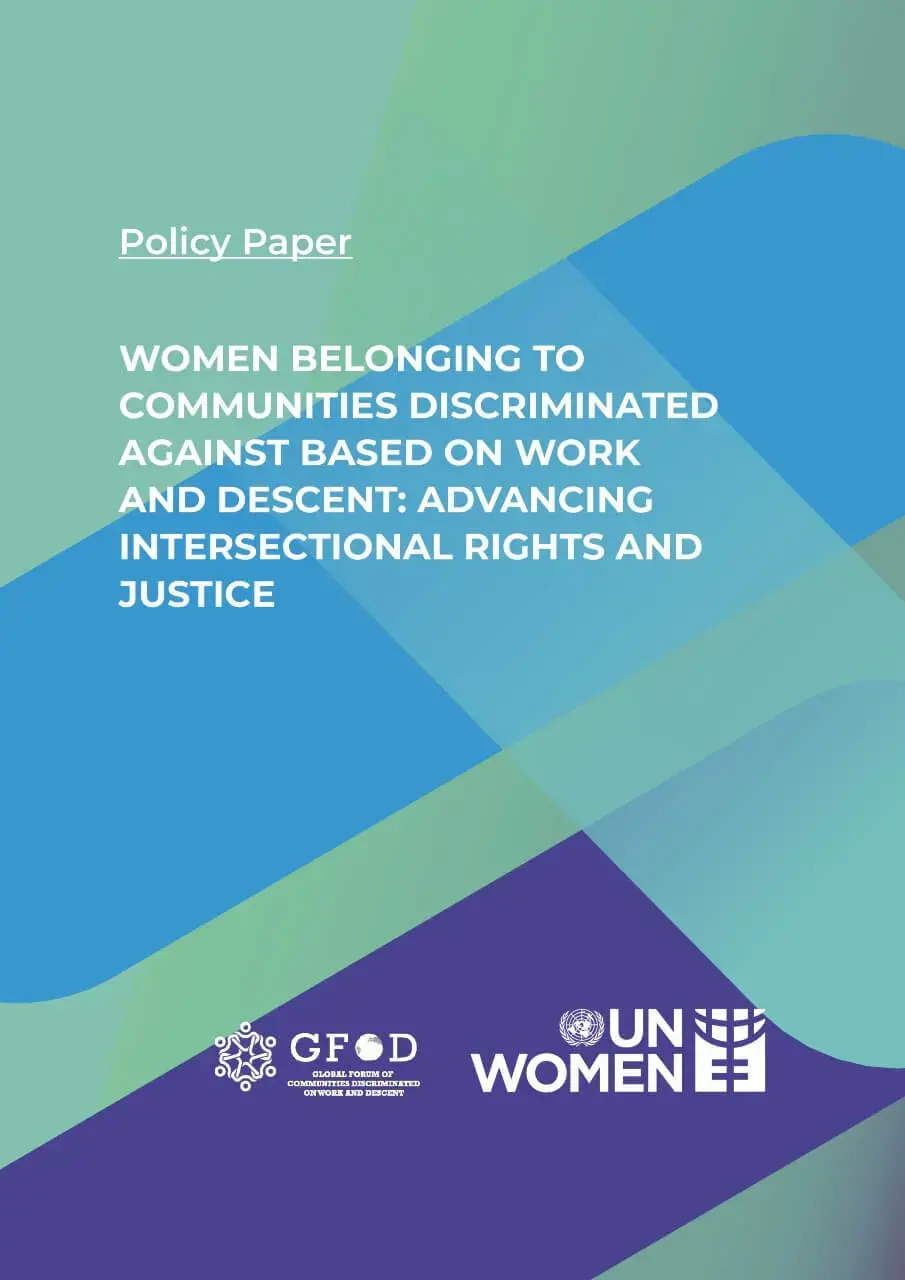
Women belonging to communities discriminated against based on work and descent: Advancing intersectional rights and justice
Around the world, 270 million geographically diverse people belong to communities that face deep-rooted discrimination based on their family’s traditional work and social status. These communities—including Dalits in South Asia, Roma in Europe, Haratines in Africa, and Quilombola in Latin America—experience systematic exclusion that passes from one generation to the next, often encompassing notions of “pollution” and “purity”. Women and girls in these communities face both inherited discrimination and gender inequality, making their situation particularly severe.
This policy paper examines how women from communities discriminated against based on work and descent (CDWD) experience multiple, overlapping forms of discrimination that affect every aspect of their lives. It brings together research, legal analysis, and consultations with grassroots organizations to provide a comprehensive look at this underrecognized human rights issue.
The publication identifies key areas where CDWD women face the greatest challenges, including forced labour, limited access to education and healthcare, gender-based violence, and exclusion from decision-making. It highlights promising practices, such as Nepal’s gender quotas that helped elect more than 6,500 Dalit women to local government positions, and Colombia’s cultural recognition programmes for marginalized women.
The paper provides concrete recommendations for governments, international organizations, and civil society, emphasizing the need for targeted laws, disaggregated data collection, and meaningful participation of CDWD women in designing policies that affect their lives. It calls for urgent action to address this deeply entrenched form of discrimination that perpetuates cycles of poverty and exclusion.


